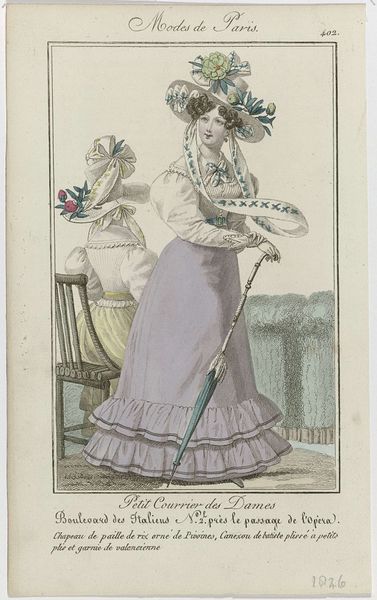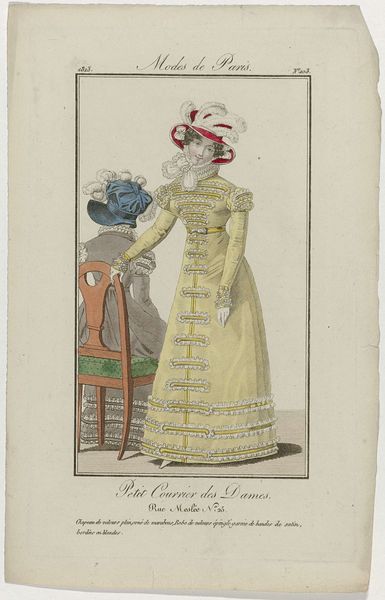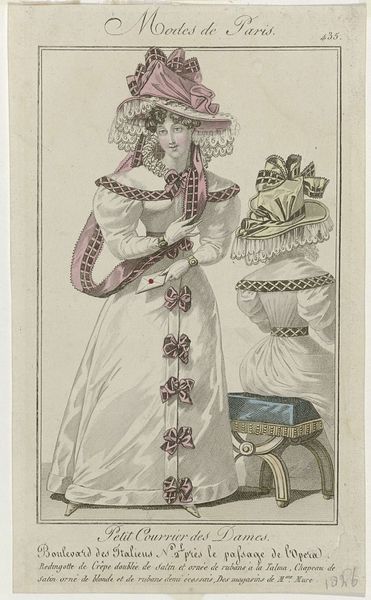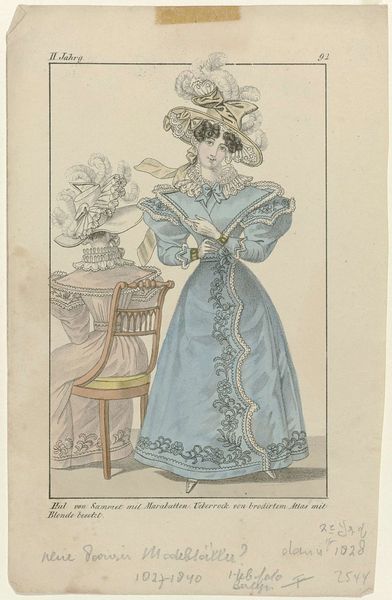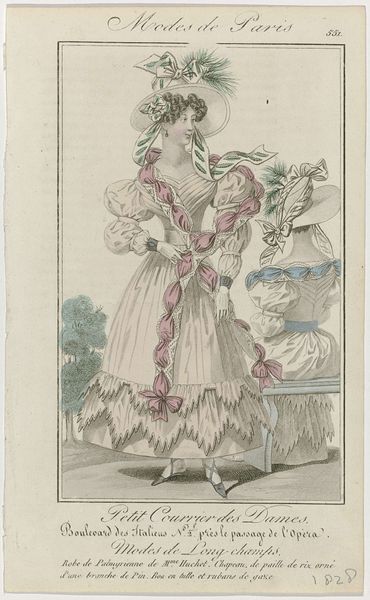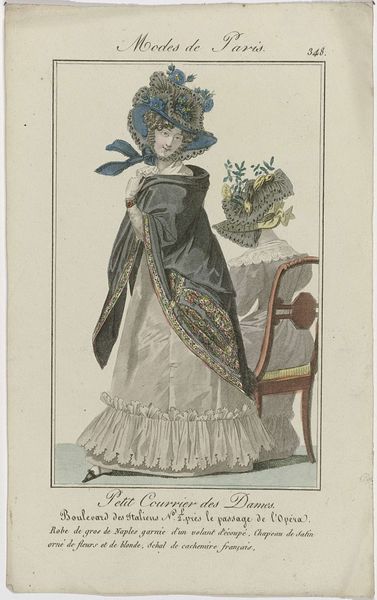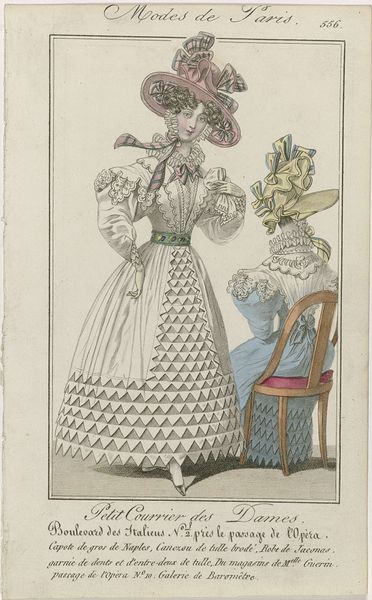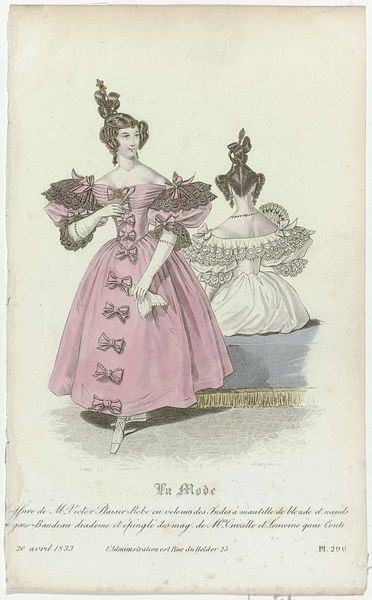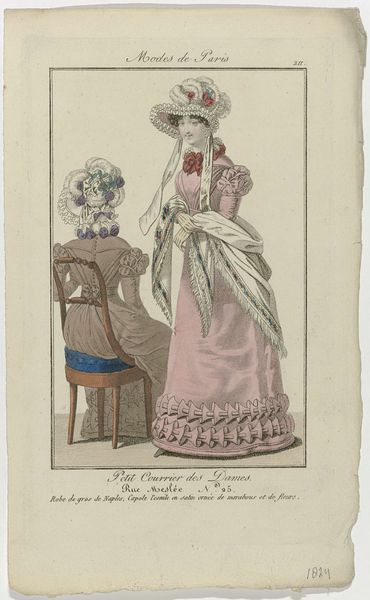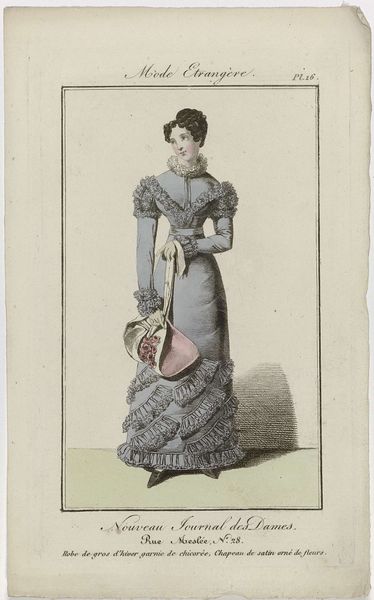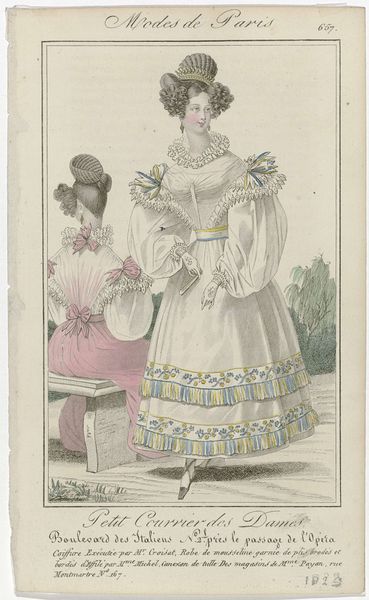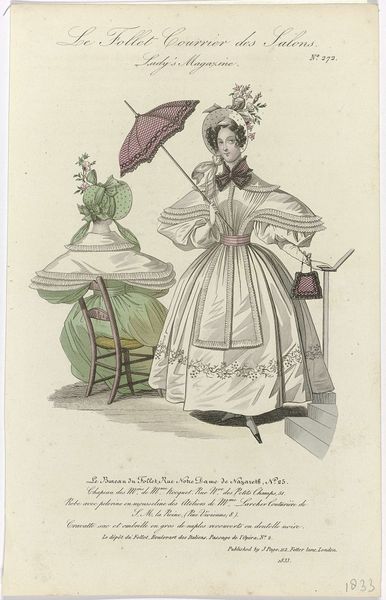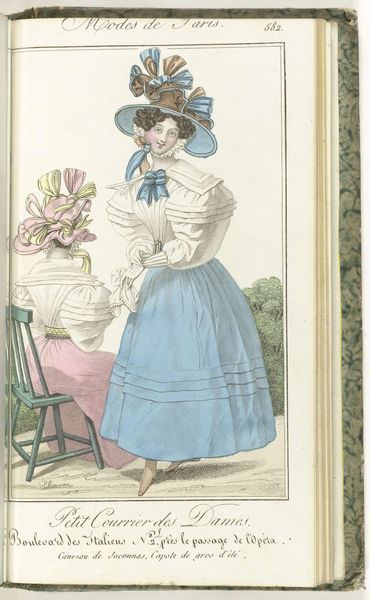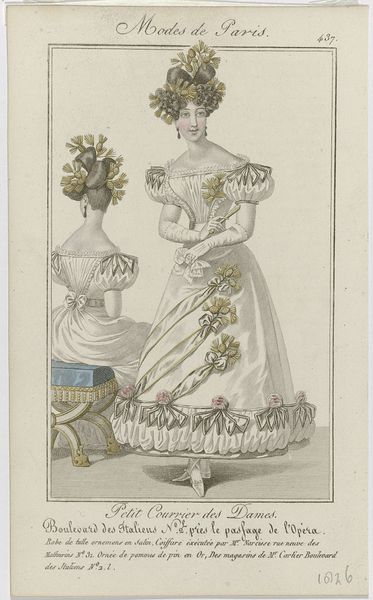
Petit Courrier des Dames, 1826, No. 393 : Robe de Cotepalie garnie de volans (...) 1826
0:00
0:00
mixed-media, lithograph, print, watercolor
#
portrait
#
mixed-media
#
lithograph
# print
#
traditional media
#
watercolor
#
romanticism
#
watercolour illustration
#
genre-painting
#
decorative-art
Dimensions: height 199 mm, width 125 mm
Copyright: Rijks Museum: Open Domain
Editor: Here we have a piece titled "Petit Courrier des Dames, 1826, No. 393 : Robe de Cotepalie garnie de volans (...)," created in 1826 by an anonymous artist. It’s a mixed-media work, incorporating lithograph and watercolor, ultimately existing as a print. It’s quite decorative, wouldn’t you say? How do you read this piece? Curator: Looking at the material production here, it's essential to consider this print not just as an image, but as a commodity. The lithograph process allowed for relatively mass production of fashion plates like these. It’s designed for consumption, reflecting and shaping the desires of its female audience. How do you think the watercolor aspect influences its reception? Editor: I suppose the watercolour gives it a touch of ‘uniqueness,’ moving it a bit away from mass-produced commodity and lending it a more ‘artistic’ quality. Curator: Precisely. The hand-applied watercolor, however minimal, elevates the perceived value and desirability, blurring the line between "art" and "craft." This tension is central. Who owned the means of production? What kind of labor went into this image, from the artist who sketched the design to the artisans who applied the color? Were these artisans men or women? What social class did they belong to? Editor: That’s fascinating! So, by understanding the process, we gain insight into the socio-economic structures of the time? I had only focused on the pretty dress and hat! Curator: Exactly! It reminds us to examine not just *what* is represented, but *how* it was made and *who* benefitted from its making. Editor: I see. This really shifts my perspective on the image. I appreciate understanding fashion this way.
Comments
No comments
Be the first to comment and join the conversation on the ultimate creative platform.
